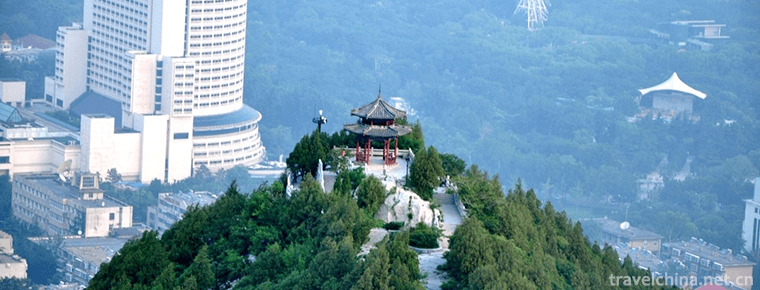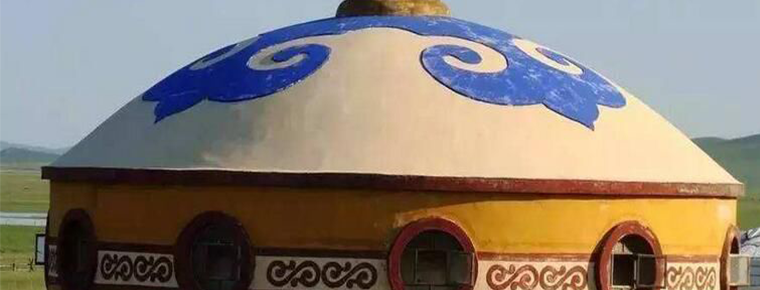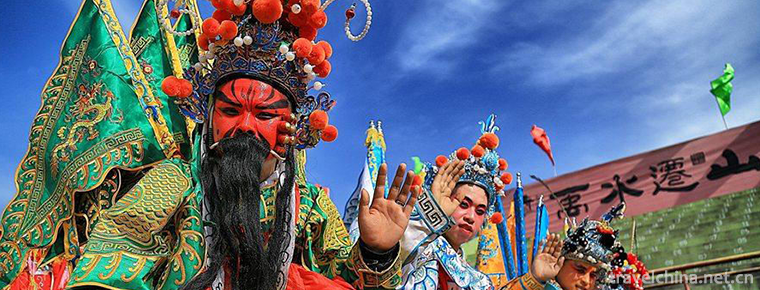2018-12-26

- By ChinaWiki.net
- Chinese Edition
- 2020-12-18
Main scenic spots in Meishan
Jiulongshan Forest Park
Jiulongshan Forest Park is located in the southwest of Sichuan Province, in Yangchang Town, Danling County, Meishan City, about 20km away from Danling county. It covers an area of 380 hectares, including 100 hectares of core scenic area. The annual rainfall in the mountain is 1130 mm, the annual average temperature is 18.5 degrees, and the forest coverage rate is as high as 86%. It enjoys the reputation of "natural oxygen bar" and "water maze". Longji mountain, the main peak of Jiulong Mountain, is only 468 meters above sea level. In May 2003, Jiulong Mountain was named "Provincial Forest Park".
Sansu Temple
Located in the west of Meishan City, Sichuan Province, Sansu temple is the former residence of Su Xun, Su Shi and Su Zhe. It was originally a five acre courtyard, which was converted into a ancestral temple in Yuan Dynasty. It was destroyed by military fire at the end of Ming Dynasty. It was rebuilt in 1665, the fourth year of Kangxi in Qing Dynasty. In 2007, Dongyuan stele Gallery, Sansu Memorial Hall (Life Exhibition Hall) and tourism reception center were newly built, with an area of more than 20 mu, with a total area of about 104 mu. The area of life exhibition hall has increased from 300 square meters to about 3000 square meters. More modern techniques are used in the display, including multimedia, touch screen, silicone wax image, 3D animation and other scenes. In 2006, it was approved by the State Council as a national key cultural relics protection unit. In 2009, it was rated as a second-class national museum by the State Administration of cultural relics. In 2010, it was rated as a national AAAA scenic spot by the National Tourism Administration.
Wawu mountain
Wawu mountain is a National Forest Park, a national AAA scenic spot, the birthplace of Taoism, the hometown of Chinese Pigeon Flower, and the kingdom of azalea in the world. 145 kilometers away from Meishan, it is located in Wawushan Town, Hongya County, covering an area of 1.05 million mu. It is composed of a series of scenic spots, such as the Wawu mountain primitive forest adventure scenic spot, Yuping artificial forest Sea resort, Bamianshan ancient hunting area, etc. Wawu mountain can be seen in four seasons, such as sunrise, sea of clouds, divine light and holy lamp "three suns".
Laoe mountain
Laoe mountain is the sister mountain of Emei Mountain. It is located in Zhangchang town and Shunlong Township, 20 kilometers west of Danling County, with an altitude of 1142 kilometers and an area of 11.8 square kilometers. The mountain is similar to Emei. It is famous for its natural landscape and scenic spots, such as sunrise, sea of clouds, Buddha light, cliff stone sculptures, etc. The scenic spot is 110 km away from Chengdu and 55 km away from Meishan.
Pengzushan
Pengzushan, a national AA scenic spot, is the birthplace of Chinese health culture. It is located in Jiangkou Town, Pengshan County, 45km to the north and 25km to Meishan in the south. There are Pengzu temple, Pengzu tomb, Pengzu Liandan cave, Yunv cave, worship stone and other historical sites; there are more than 20 scenic spots, such as Qishan double Buddha, "the first cave in the world" Yunv cave, jiutianzhansheng exploration channel, yangshanzhai, Huiguang temple, Bishan temple, etc.
Liujiang ancient town
Liujiang ancient town is located in Hongya County, more than 100 kilometers away from Chengdu. It is one of the "top ten ancient towns in Sichuan". It is known as "the hometown of Yanyu Liujiang and Ya women". It is on the way to Wawushan National Forest Park. Huaxi River is surrounded by stilted buildings with unique ancient residential style in southern Sichuan.
Heilong Beach
Heilongtan is a provincial scenic spot. It is a man-made lake, 68 km away from Chengdu in the north and 20 km away from Meishan in the West. The lakeshore length is 310 km, and the length of South-North is 25 km. The water surface is 23.6 km2 and the water storage capacity is 360 million cubic meters.
Ask a Question
Your email address will not be published.



0 Questions